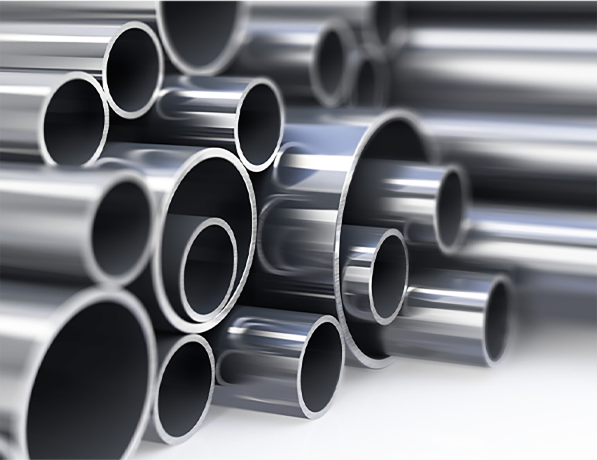Innovative Techniques in Seamless Steel Tube Production and Manufacturing Processes
Dec . 10, 2024 02:49
The Seamless Steel Tube Manufacturing Process
Seamless steel tubes are widely used in various industries, including automotive, construction, and energy, due to their strength, durability, and ability to withstand high pressure and temperature. The manufacturing process of seamless steel tubes is intricate and requires precise engineering to ensure quality and performance. This article will describe the key stages involved in the production of seamless steel tubes.
Raw Material Selection
The seamless steel tube manufacturing process begins with the selection of high-quality steel billets. Typically, these billets, which are solid blocks of steel, are made from carbon or alloy steel, depending on the intended application of the final product. The choice of raw material is crucial, as it significantly affects the mechanical properties of the finished tube.
Heating the Billet
Once the billets are selected, they undergo a heating process. The billets are heated in a specialized furnace to a temperature that allows them to become malleable, usually around 1200°C to 1300°C (2200°F to 2400°F). This high-temperature environment prepares the steel for the next steps by reducing its brittleness and increasing its workability.
Piercing and Elongation
The next phase is the piercing process. After heating, the billets are placed in a piercing mill, where a mandrel penetrates the heated steel, transforming it into a hollow tube shape. This stage is critical as it creates the initial hollow structure and begins the elongation of the steel.
Following the piercing, the hollow tube needs to be elongated to the desired length and diameter. This is typically done through a process known as elongation, which involves passing the pierced tube through a series of rollers and additional mandrels. This step not only elongates the tube but also ensures uniform wall thickness and dimensional accuracy.
Tolerancing and Sizing
After elongation, the tubes need to be sized properly to meet specific standards. This is accomplished through a sizing mill, where the tubes are passed through precisely calibrated dies. This process helps to refine the outer diameter and wall thickness, allowing for tighter tolerances. Accurate sizing is essential to ensure compatibility with various applications and fittings.
seamless steel tube manufacturing process
Heat Treatment
One of the critical aspects of the seamless steel tube manufacturing process is heat treatment. The tubes undergo a heat treatment process to enhance their mechanical properties, such as strength, toughness, and ductility. Common heat treatment methods include annealing, normalizing, and quenching. Each method is chosen based on the desired characteristics of the final product.
Surface Treatment
After heat treatment, the seamless steel tubes often require surface treatment to remove any scale or imperfections. The most common methods for surface treatment are pickling (using acid solutions to clean the surface) and shot blasting (using abrasive materials to create a smooth finish). This process not only improves the aesthetics but also enhances corrosion resistance, essential for many applications.
Inspection and Quality Control
Quality control is a crucial component of the seamless steel tube manufacturing process. Various non-destructive testing methods, such as ultrasonic testing and x-ray inspections, are used to detect any internal or external defects. Additionally, parameters like wall thickness, diameter, and overall straightness are thoroughly measured to ensure compliance with industry standards.
Final Processing and Delivery
Once the inspection is complete and the tubes meet all quality requirements, they may undergo further processing, such as cutting to length, threading, or the application of protective coatings. Finally, the seamless steel tubes are packaged and prepared for delivery to customers, ensuring they arrive in perfect condition.
Conclusion
The seamless steel tube manufacturing process is a sophisticated combination of precise engineering, high-quality materials, and rigorous quality control. By understanding each step in the process—from raw material selection to final delivery—one can appreciate the complexity and craftsmanship involved in producing seamless steel tubes that meet the demands of various industries worldwide.
 Afrikaans
Afrikaans  Albanian
Albanian  Amharic
Amharic  Arabic
Arabic  Armenian
Armenian  Azerbaijani
Azerbaijani  Basque
Basque  Belarusian
Belarusian  Bengali
Bengali  Bosnian
Bosnian  Bulgarian
Bulgarian  Catalan
Catalan  Cebuano
Cebuano  Corsican
Corsican  Croatian
Croatian  Czech
Czech  Danish
Danish  Dutch
Dutch  English
English  Esperanto
Esperanto  Estonian
Estonian  Finnish
Finnish  French
French  Frisian
Frisian  Galician
Galician  Georgian
Georgian  German
German  Greek
Greek  Gujarati
Gujarati  Haitian Creole
Haitian Creole  hausa
hausa  hawaiian
hawaiian  Hebrew
Hebrew  Hindi
Hindi  Miao
Miao  Hungarian
Hungarian  Icelandic
Icelandic  igbo
igbo  Indonesian
Indonesian  irish
irish  Italian
Italian  Japanese
Japanese  Javanese
Javanese  Kannada
Kannada  kazakh
kazakh  Khmer
Khmer  Rwandese
Rwandese  Korean
Korean  Kurdish
Kurdish  Kyrgyz
Kyrgyz  Lao
Lao  Latin
Latin  Latvian
Latvian  Lithuanian
Lithuanian  Luxembourgish
Luxembourgish  Macedonian
Macedonian  Malgashi
Malgashi  Malay
Malay  Malayalam
Malayalam  Maltese
Maltese  Maori
Maori  Marathi
Marathi  Mongolian
Mongolian  Myanmar
Myanmar  Nepali
Nepali  Norwegian
Norwegian  Norwegian
Norwegian  Occitan
Occitan  Pashto
Pashto  Persian
Persian  Polish
Polish  Portuguese
Portuguese  Punjabi
Punjabi  Romanian
Romanian  Samoan
Samoan  Scottish Gaelic
Scottish Gaelic  Serbian
Serbian  Sesotho
Sesotho  Shona
Shona  Sindhi
Sindhi  Sinhala
Sinhala  Slovak
Slovak  Slovenian
Slovenian  Somali
Somali  Spanish
Spanish  Sundanese
Sundanese  Swahili
Swahili  Swedish
Swedish  Tagalog
Tagalog  Tajik
Tajik  Tamil
Tamil  Tatar
Tatar  Telugu
Telugu  Thai
Thai  Turkish
Turkish  Turkmen
Turkmen  Ukrainian
Ukrainian  Urdu
Urdu  Uighur
Uighur  Uzbek
Uzbek  Vietnamese
Vietnamese  Welsh
Welsh  Bantu
Bantu  Yiddish
Yiddish  Yoruba
Yoruba  Zulu
Zulu 












